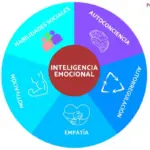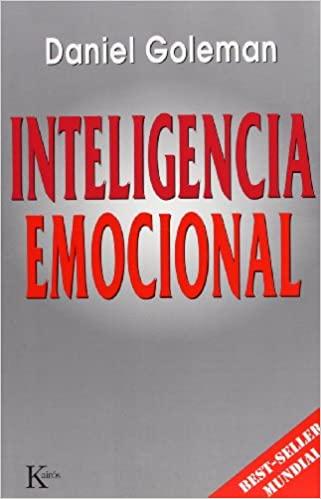Are you interested in knowing what your intelligence is like? Discover Sternberg’s triarchic theory of intelligence and find out how to develop your mental abilities.

Formulated by psychologist Robert J. Sternberg, the triarchic theory of intelligence proposes that there are three different types of it. According to this triarchic theory, each of us can feel identified in one of them and that category can define how we behave with the world.
How was the triarchic theory developed?
It was in 1985 when Sternberg established an alternative to the idea that intelligence can only be defined through one aspect. This style of intelligence is what is normally measured in intelligence tests carried out today. Mainly, these tests mark successful intelligence when there are good academic results.
During the development of the Sternberg’s triarchic theory, this researcher explained that there are other types of intelligence that allow us to adapt and react to different ways in which the world presents itself to us. He also argued that people’s intelligence is not static, but rather changes as skills develop.
Sternberg’s triarchic theory of intelligence
As we have mentioned, Sternberg established through his triarchic theory of intelligence that there were three different ways of defining it. So much so that he divided his theory into three aspects to address each of the different intelligences.
-
Contextual subtheory
It states that intelligence is intertwined with the individual’s environment. Therefore develop a successful intelligence It goes hand in hand with trying to adapt to each of the situations that arise in our daily lives. In this way, in the triarchic theory we can establish that a part of intelligence can be developed through adaptation to the environment, selecting the best scenario for us and ending up shaping the environment that surrounds us so that it adjusts to our needs or desires. .
-
Experiential subtheory
The triarchic theory of intelligence It also proposes that there is an experiential part that influences our development in intelligence. It is precisely at the extremes of our experiences that this kind of intelligence is demonstrated. When new situations happen and an individual faces an unknown task, it shows how we develop in this aspect. At the other extreme, this is when a person has become so familiar with a situation that they handle it with almost no effort.
-
Component subtheory
In this Sternberg subtheory various mechanisms are described that result in the development of intelligence.
- Metacomponents: They are the mental structures that allow us to monitor, control and evaluate mental processing. Therefore, it allows us to make certain decisions, as well as solve problems and create certain plans.
- Performance: It is the attitude we take based on the plans and decisions that come to us through the metacomponents.
- Knowledge acquisition: It is the way in which we capture new information and it helps us develop.
It is through these premises that Sternberg developed his triadic theory of intelligence Therefore, they will allow us to know ourselves better and improve our mental abilities.

Types of intelligence according to Sternberg’s theory
Each of the subtheories that we have shown reflects a type of intelligence or cognitive ability.
1. Practical intelligence
Sternberg called the ability to successfully interact with the everyday world practical intelligence This type of ability is what people show by behaving successfully in their environment. Many times we call this intelligence, being or not being smart in life. Being able to adapt to each of the scenarios that arise in life is a capacity that shows a lot of intelligence on the part of the individual who possesses it. Most people who have this practical intelligence have the following characteristics.
- Be smart
- Understand the environment
- Adaptive skills
- Finding the benefits in any situation
- Profit from bad experiences
This may be a small sample of intelligence of this style. A good example of this are people who can drive very well in just a few attempts.
2. Creative intelligence
This type of intelligence is related to experiential subtheory It is primarily defined as one’s ability to use one’s knowledge and experiences to create new ways of handling life’s problems or coping with new situations. In this type of intelligence, artistic and imaginative abilities stand out.
- They have a lot of imagination
- They like the arts
- They know how to find another point of view
- Sensitive to the environment
According to Sternberg, intelligence This style is clearly presented when new solutions are extracted for a specific problem.
3. Analytical intelligence
In the triarchic theory of intelligence, this cognitive ability is related to the componential subtheory. When people have this intelligence, they mainly use their skills to solve problems through the data or information we have collected. Unlike creative intelligence, this intelligence focuses on practical issues. Creative intelligence is closely related to academic virtues both in the areas of reading and calculations. In this way we could express the following characteristics that define this intelligence.
- Analytical vision
- Constant evaluation of the environment
- They tend to judge
- They compare different results or experiences
- Continuously contrast information
Thus, Sternberg He was able to observe that the three types of intelligence he found are more than necessary to develop successful intelligence. Having a balance of these cognitive skills ultimately leads to success in a person’s personal and professional life.

How can we improve our intelligence?
According to Sternberg’s triarchic theory Our intelligence can be developed through different ways.
-
Intelligence can be trained
Each of the types indicated through the Sternberg theory can be developed in certain activities. For example, a type of creative intelligence can be fostered by practicing some art. In the same way, if we want to increase our practical intelligence, we can leave the comfort zone. Finally, analytical skills can be fostered through reading and mathematical exercises.
-
The more training, the more intelligence
The more you train, the more you can promote intelligence in each of these areas. Therefore, it is a matter of desire and effort to achieve a successful intelligence
-
Have good mental health
Many times mental and cognitive development is impaired due to certain psychological pathologies. Therefore, to enjoy good intelligence, you need to have good mental health. If you think this is your case you can always consult with a professional psychologist.
Intelligence greatly determines our way of life and our way of seeing our existence. Even so, through the triarchic theory We can affirm that this can change through our efforts. Therefore, you can always improve your life through mental development.








